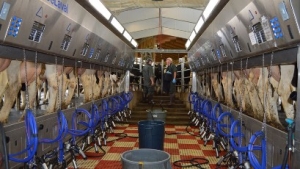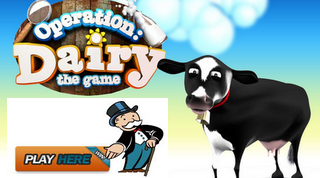Economic - Markets
Why milk prices and contracts don't always determine business success

Grace O’ Dwyer from HSBC UK, the event’s principal sponsor, speaking at the virtual event on 30 September, which attracted almost 100 delegates, outlined four factors that are the foundations of a strong business. They include:
-
People
-
Having a clear purpose and setting goals
-
Blending the skills of the team
-
Bringing in expertise when needed
Ms O’ Dwyer said the dairy sector had shown great resilience during the pandemic with some businesses having to reinvent themselves.
She added: “HSBC UK sees agriculture and dairy as really dynamic sectors. They have demonstrated (during the pandemic) great resilience; have been highlighted as keyworkers and have shown their ability to react and change. We have a huge appetite to talk to farming businesses and help them.
“The banks can be a critical friend. We want to have relationships with customers so when they have concerns, they can come to us before they have a problem,” she added.
Sian Williams, also from HSBC UK added: “Milk contracts are vital to a business, however, there are so many types of contracts it is important to have the right contract to fit the business and not the bank.
“From a bank point of view, we are looking at how well set-up you are to meet that contract. The bank will not give an opinion on who you sell your milk to,” she said.
Making your business resilient
Mary Quicke of Quicke’s Cheese and 2019 Dairy Industry Woman of the Year said sales of cheese had dropped by 60 percent because of the pandemic, but that over the long-term cheese had given her family business a significant additional milk price.
She made major changes to the family business back in 1996 to make it more resilient. This in the main included changing from a high yielding Holstein herd calving all year round to a block calving grass-based system using cross-bred cows.
She said: “At the time, the only way to bring our cost of production down was to expand. However, quotas were every expensive up at 60p/litre, so we knew expansion was not possible, so we looked at other ways.
“It was unsustainable doing what we were doing back then as we were working long hours and it was more labour intensive as we were having to feed cows indoors and were buying in more feed.
“Now it feels like we are working alongside the natural world and the cows are doing all of the work, as they make their own beds, spread their own slurry and get their own food by grazing.
“You can get fabulous welfare in any system, but our system now is also giving better human welfare as the cows are doing a lot of the work. It means people don’t have to work long hours, they can work five days a week and it is giving young people the opportunity to run herds,” she said.
Since moving to a more extensive system they have reduced their cost of production by about 20 percent.
Ms Quicke said if things are not working farmers need to look at what they can do about it. “It is important to have the tools to take you through when times are less good. Learn new skills and remember, your first idea may not always be your best idea. If you can take that kind of responsibility it will help you.”
Ms Quicke also outlined the importance of having a purpose. “You should live and work from an inspiring context and you should always have a purpose. The idea that you work to a purpose can be really inspiring.
“My business purpose is to produce world-class cheese and to sell it globally. My personal purpose is to get all people inspired by food and farming,” she said.
Click here for more information on the Women in Dairy conference.























